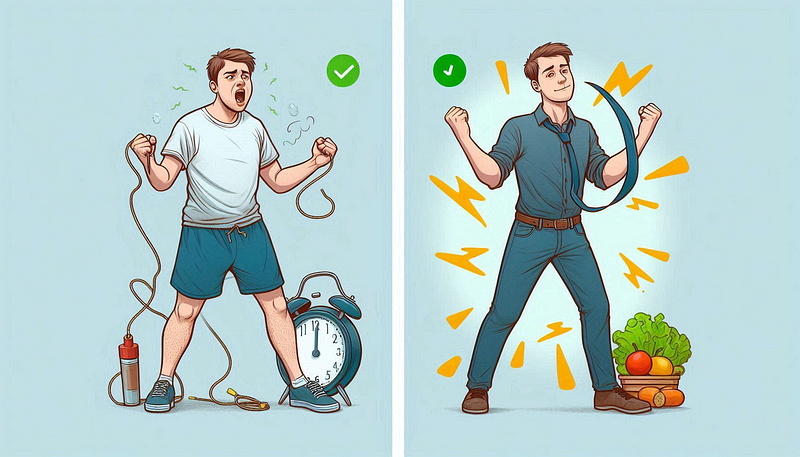Boosting Testosterone Naturally: Dietary Strategies Explained
Written on
Chapter 1: Understanding Testosterone
Testosterone plays a crucial role in motivation, muscle development, and anti-aging processes. In this discussion, we will delve into dietary recommendations that can help elevate testosterone levels.
To emphasize the importance of testosterone, it’s vital to understand how dietary choices impact hormone production.
Section 1.1: Caloric Intake and Hormone Production
To produce hormones effectively, adequate caloric intake is essential. Severe calorie restrictions can lead the body to prioritize survival over reproductive functions, causing testosterone levels to plummet. Research indicates that individuals consuming between 1350 and 2415 kcal daily exhibited testosterone levels that were 31% lower than those who consumed between 2145 and 3537 kcal. To determine your daily caloric needs, consider using a caloric calculator. For further insights on healthy calorie choices, refer to the previous article.

Section 1.2: Carbohydrates and Hormonal Balance
Carbohydrates should constitute 20–40% of your total caloric intake. Previous discussions have highlighted that limiting carbohydrate consumption can elevate stress hormones, which in turn can diminish testosterone levels. Numerous studies reinforce the idea that low-carb diets can negatively affect testosterone. Strive to derive 20–40% of your calories from carbohydrates. For more details on nutritious carbohydrate sources, consult the following articles.
Subsection 1.2.1: Enhancing Dietary Quality
How to Improve The Quality of Your Diet (Part 1)
Section 1.3: The Role of Protein
Protein should account for 20–25% of your overall caloric intake. Research indicates that testosterone levels reach their peak when individuals consume approximately 1.6g of protein per kilogram of body weight daily. However, it is essential to maintain a balance with overall caloric intake. Aim for protein to make up around 20–25% of your total calories. For a list of quality protein sources, refer to previous discussions.
Subsection 1.3.1: Protein Sources that Matter
How to Improve the Quality of Your Diet (Part 2: Protein)
Section 1.4: Importance of Healthy Fats
Incorporating sufficient saturated fats into your diet is crucial for maintaining optimal testosterone levels. A deficiency in fat intake can lead to declines in testosterone. It is advisable to include saturated fatty acids and monounsaturated fatty acids in your meals, such as those found in animal products (coconut oil is also beneficial). Conversely, polyunsaturated fats found in vegetable oils and processed foods can lower testosterone levels, so it is wise to limit these items. For guidance on identifying good fats, refer to the previous article.
Subsection 1.4.1: Identifying Quality Fats
How to Improve the Quality of Your Diet (Part 3)
Chapter 2: Additional Resources
For more insights on naturally enhancing testosterone levels, revisit the earlier article in this series.
The first video titled "The Science of How to Optimize Testosterone & Estrogen" explores the mechanisms behind hormone optimization and offers scientific insights.
The second video, "How to Naturally Increase Testosterone with Exercise," discusses the types of exercises and their impact on testosterone levels, including recommended reps and rest periods.